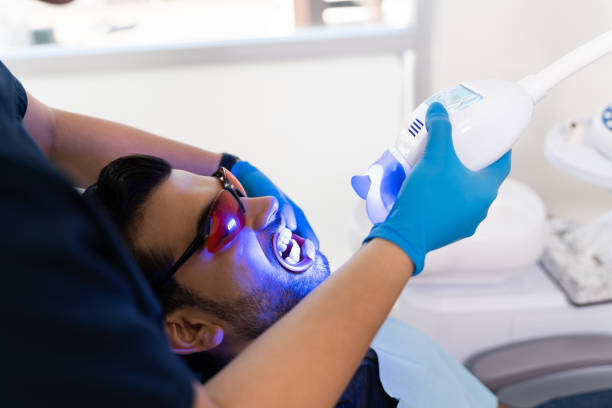Most of us think of powerful workouts, balanced diets, and activity in the realm of fitness. What you might not know is that sleep hygiene is probably one of the most underrated elements in a fitness routine. Quality sleep, because of its impact both physically and mentally, maximises your results. We’re going to discuss this topic a little bit: how it relates to your journey, tips to improve your overall well-being, and more.
What is Sleep Hygiene?
To avoid confusing the issue further, let us first define clearly what Sleep care means. Generally, Sleep care refers to practices and habits that ensure good, restful sleep; it involves the creation of an environment and the adoption of behaviour that leads to quality sleep. Good sleep care ensures you sleep faster, sleep longer, and wake up feeling refreshed.
Many people tend to think that sleep is a passive thing, but it is an active process that affects your physical and mental health directly. The poorer your sleep hygiene, the more significantly your ability to recover from exercise, manage stress, and perform at your best will decline. Thus, if serious about fitness, then it’s certainly not something to ignore.
How Sleep Hygiene Affects Your Fitness Goals
Recovery and Muscle Growth
Besides, if you engage yourself regularly in strength training or high-intensity exercise, your muscles get stressed. It causes ruptures to your muscle fibres, which need repair and growth for the development of more strength. Most of this muscle repair takes place while sleeping. Since your body releases growth hormones during deep sleep to repair and construct muscle tissue, you probably cannot recover properly without sufficient sleep.
Energy and Performance
A well-rested body means a better performance in the physical aspect. Whether you work out at the gym, run, or engage in any form of workout that can be strenuous on the body, sleep affects your energy levels. Good sleep care means waking up feeling refreshed and energetic. Compared to this, poor sleep can make your body drag from each step to get through the completion of a workout session. If you feel like pushing harder at the gym, start by prioritising your sleep hygiene.
Mental Health and Motivation
Second, sleep is also crucial for mental health. Lack of sleep can slowly turn an individual into an irritable and stressful person leading to a depression stage. Mental stress depression drowsiness can demote you and make you lose concentration. When you don’t get good sleep at night, your willpower to prepare a healthy diet or follow a schedule to exercise in the gym decreases. Keeping your sleep care in check will keep you mentally alert and focused as you go along with your fitness journey.
Key Components of Good Sleep Hygiene
Having understood the importance of sleep care, let’s discuss how you can improve it. For this purpose, some key components that you could utilise in your daily routine are as follows:
1: Sleep Schedule
Normalising bedtime schedules is one of the most relevant habits in good sleep hygiene. That means going to bed and waking up roughly at the same time every day, even at the weekends. Consistency helps regulate your body’s inner clock so you can easily fall asleep and wake up.
If you sleep late and sleep in on weekends, then all during the week, you will more than likely be feeling out of sync and having difficulty sleeping. Establish a routine and your body will thank you.
2: Create a soothing bedtime routine
It’s just like how, before a workout, you warm up to loosen the muscles, whereas, in this case, you need to warm your head and body to sleep—a good bedtime routine conditions your brain to relax as it is time for that. Reading a book, a relaxing bath, or practicing deep breathing can calm the mind and the body enough to prepare you to go to sleep.
Steer clear of stimulating activities which may stimulate the brain such as watching television, using a mobile phone, or engaging in vigorous discussions before your sleep. This may make you find it hard to relax and fall asleep.
3: Improve Your Sleep Environment
Your sleep environment can play a tremendous role in your hygiene to sleep. Here are several ways to improve your sleep space:
Keep your bedroom cool: Cooler temperatures make it easy for your body temperature to drop, which facilitates sleep. Your average sleep temperature ranges from 60 to 67°F (15 to 19°C).
Decrease noise and light: Make use of earplugs or even a white-noise machine to minimize the noise in the room. Black-out curtains could minimise any light that may penetrate the room. Both light and sound will disturb your sleep from even the tiniest level.
Invest in a comfortable mattress and pillows: Comfort matters. If your mattress or pillows are old and uncomfortable, it may be time to replace them. Your bed should support your body and make you feel relaxed.
4: Watch What You Eat and Drink
What you take into your stomach during the day can easily affect how you sleep at night. Of course, it is not advisable to have large meals, caffeinated drinks, or alcohol close to bedtime. Caffeine acts as a stimulant and disturbs your sleep patterns; alcohol renders you wakeful several times a night.
However, you might prefer a lighter snack when hungry at night. The sleep-inducing nutrients in bananas, almonds, and yogurt include magnesium and tryptophan, which may help you sleep well.
5: Get Acquainted with Your Bad Nighttime Habits
Your sleeping hygiene also depends on your daily habits, which include how you are engaged during the daytime in terms of exercise and exposure to sunlight. Regular exercise promotes ease of falling asleep and depth of sleep. Just make sure you end your workout several hours before bedtime because exercising close to sleep time might make it difficult for you to sleep.
In addition to this, daylight during the day but more so in the morning will also regulate the sleep-wake cycle. Whenever possible, take breaks to get outside into daylight to keep your body’s natural rhythms on track.
6: Limit Napping
Napping can be beneficial especially when one is sleep-deprived. Nonetheless, excessive napping or daytime sleeping often pushes out night-time sleep. When napping, nap for periods that are as short as 30 minutes, and avoid napping close to the latter parts of the afternoon.
Naps lasting long or too late in the day interfere with your ability to sleep at night, thereby disrupting your sleep pattern and degrading the quality of your sleep.
7: Stress and Anxiety Management
Stress and anxiety can severely affect your ability to sleep. Lying awake at night worried is very common, and so practicing stress management activities might be helpful when lying awake. These may include meditation, deep breathing, or journaling.
You can also make a worry list throughout the day by writing down anything that comes to mind. This way, you will deal with the thoughts much earlier so they do not keep you up at night.
How Long Should You Sleep?
While all of us are different in our sleep needs, most adults require 7-9 hours of sleep per night. If you’re not certain about how much sleep you need, you can begin at 7-8 hours and adjust from there according to how you feel. You could likely sleep longer if you wake up feeling tired or groggy during the day.
It’s also important to observe quality rather than quantity. Sleep is not merely a matter of accumulating hours spent in bed; poor sleep hygiene may prevent restful sleep even when spending 8 hours at night. Use the tactics for good quality, uninterrupted, and deep sleep discussed above.
Conclusion
Most simple: start improving your sleep hygiene. Good sleep can contribute well to the recovery of the muscles but directly impacts your ability to succeed on your way: be it in concentrated mental effort or flexibility adaptation for skills in exercise. Proper sleep – with a routine, environment optimisation, and daily habits – can greatly influence its quality.
Remember that, like exercise and diet, sleep is important to health and fitness. Place importance on sleep hygiene and you will find rewards in greater energy, motivation, and out-of-gym performance.










